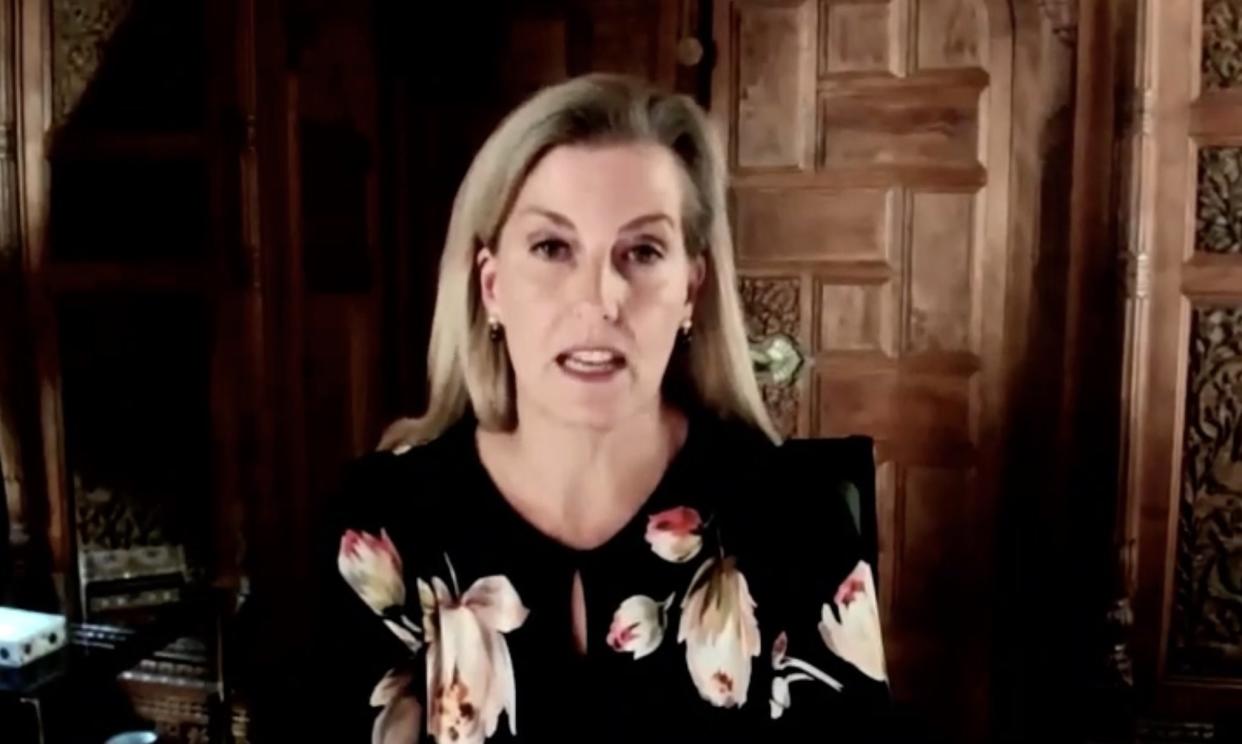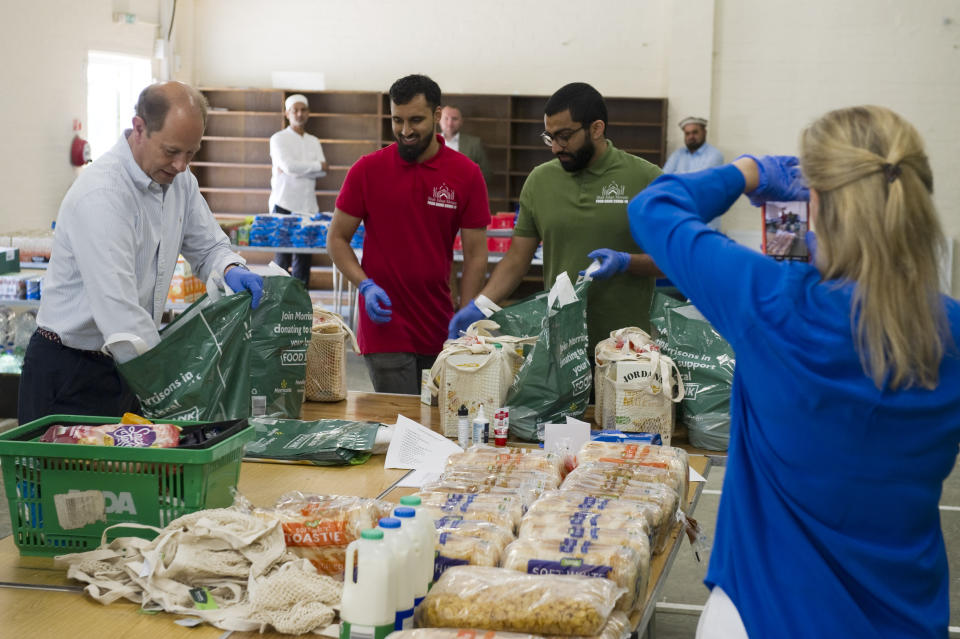Royal warning that coronavirus pandemic is putting women at greater risk of sexual violence

The Countess of Wessex has said the coronavirus pandemic has disproportionately affected women in conflict zones because they have been unable to access help for sexual violence.
Sophie spoke at a virtual UN event to mark the international day for the Elimination of Sexual Violence in Conflict.
She called for a survivor-centred approach, asking that “local realities shape global responses.”
Beginning by acknowledging how the world has “shrunk” by the power of digital platforms, Sophie said many people were disconnected, adding: “Since the pandemic began the number of cases of sexual violence across conflict settings and in domestic settings are very likely to have risen substantially.
“Women and girls once again are being affected disproportionately, with increased difficulties in accessing sexual and reproductive healthcare, higher numbers of maternal deaths and teenage pregnancies, closures of domestic violence shelters, closure of schools, reduction in aid work and funds for charities, delays in relief packages.
“COVID-19 has amplified suffering with the restrictions imposed on survivors.”
She added that “time is against the victims” and said action plans to tackle sexual violence should be “accelerated” where possible.
Sophie, 55, said: “My message therefore today is simple, and I hope I may speak for all survivors of Conflict Related Sexual Violence when I say: we must listen to the needs and wishes of all survivors and we must act accordingly.”
The countess closed by saying: “Let us all respond by listening to the needs of Survivors and with the urgency that they deserve.”
Mother-of-two Sophie, who is married to Prince Edward, the Queen’s youngest son, has had a more visible royal role in recent weeks during the coronavirus pandemic.
But she has been working on the Women, Peace and Security (WPS) agenda and the UK’s Preventing Sexual Violence in Conflict Initiative (PSVI) since the end of last year.
In 2019 she visited Kosovo where she highlighted the trauma and stigma faced by sexual violence survivors of the Kosovo War, meeting survivors and charity workers to see the efforts being made to tackle it.
She also became the first royal to visit South Sudan, taking a trip earlier this year where she met survivors of gender-based violence.
Read more: How Sophie Wessex rose through the royal ranks

Speaking at the time, she said: “The women and girls that I have met this week fill me with confidence that South Sudan has the right women to work alongside their male counterparts to bring about a lasting peace for everyone and a more equal country.
“So my message to the men is to encourage you all to listen to your women folk and to support them to take their place at your side. This is not a take-over, this is not a competition, this is about peace, it is about unity, it is about what is fair and right for the benefit of all. At the end of the day we are better together.”
Sophie has been a working royal since 2002 when she and her husband Prince Edward gave up their paid work to support the Queen.
Through lockdown, she has been volunteering with groups near to their home in Bagshot Park, and returned to face-to-face duties earlier this week when she joined counsellors at Childline on a shift.

 Yahoo News
Yahoo News 

